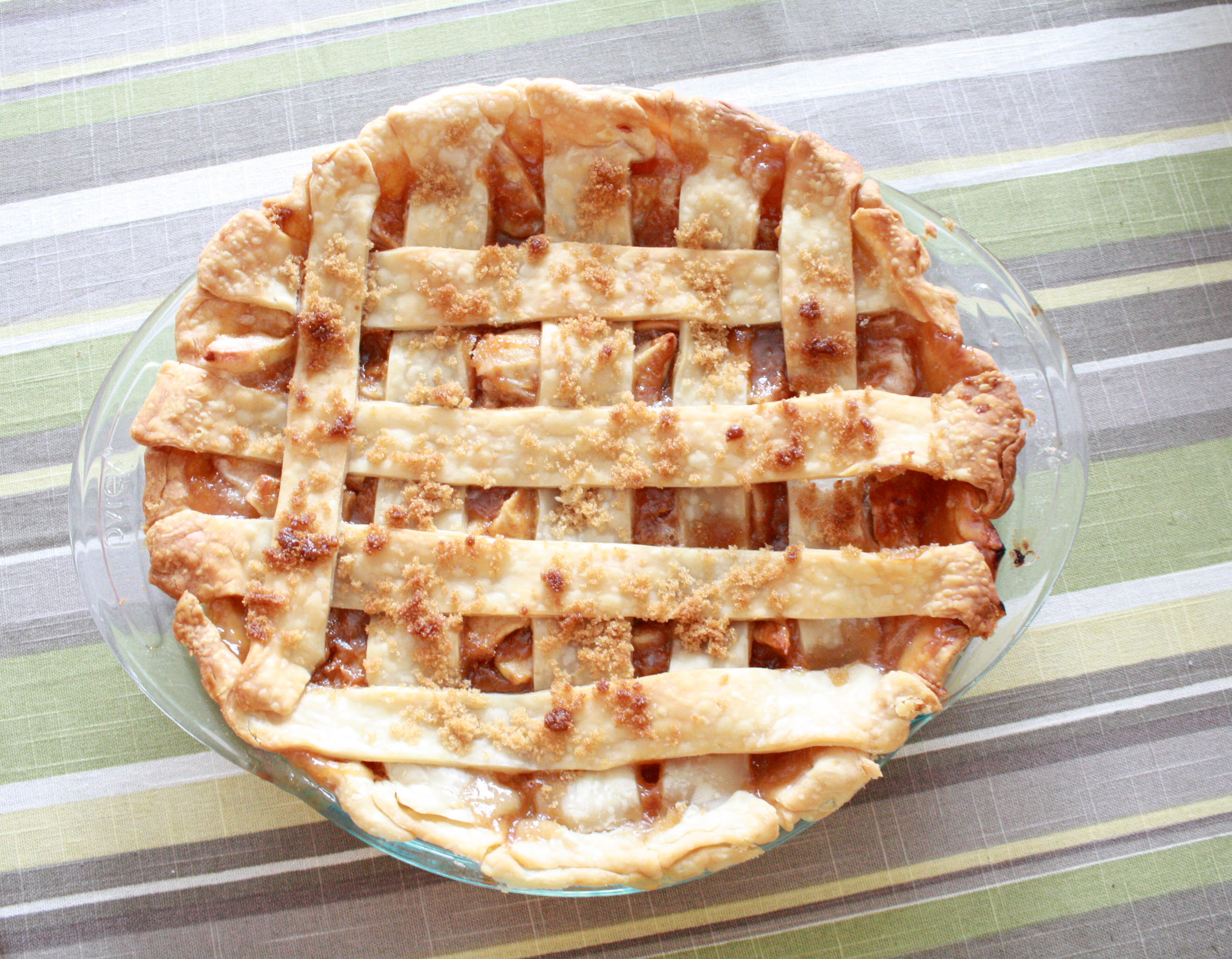
Carl Sagan said that in order to make an apple pie truly from scratch, you would first have to create a universe.
The cosmologist’s reasoning was that in any universe you didn’t create, you have to use materials you didn’t create. You didn’t invent apples, for instance. I would like to suggest that in parallel with Sagan’s postulate, in order to fully understand an apple pie, you would first have to understand the universe.
There’s a basic probability problem in which red and blue marbles are put in a bag. You reach in blindly and take one out. What is the probability that the marble you take will be blue? This problem is a complete sham. With the information I just provided, we assume that there are just as many red marbles as there are blue and that they’re distributed evenly.
If I now tell you that there are twice as many red marbles, the probability changes. If I tell you that the technique used to mix them isn’t very thorough, the odds change again. That’s because contrary to the implications of any beginning statistics course, there is no such thing as absolute probability. Probability is a model based on limited information, and as your information becomes more complete, your model becomes more complex. The logical extreme is the scenario in which you know with certainty the position of every marble and your hand inside of the bag and can accurately predict not only what color the marble will be, but exactly which marble of that color. At that point it’s not even probability anymore — just outright fact.
Any statistical model relies on context for its accuracy. I would even argue that pretty much everything relies on context for the majority of its meaning. Hitler mustaches and feathered head-dresses are obviously not offensive in and of themselves, but historical context places them off-limits for general use.
Even the amount of context to provide is itself context-sensitive because the context has its own context. I’m not going to tell you my entire life story when you ask what I want for dinner because that would be absurd, but from a certain perspective that would make sense because it all plays into my answer to some extent. From there, the history of my family and every one of its myriad origins affects my life, and so on, following the butterfly effect back to the beginning of time.
To fully understand everything about what an apple pie is, you’d have to understand the universe. Of course, you can’t understand the universe, so we settle for approximations. It’s made of apples, which we know have a set of traits. There’s some sugar, which we know a little more intimately because it’s chemically simpler. We recognize that we don’t actually need to know where every apple came from or at what temperature the sugar was purified.
Without infinite information, there is no real objectivity. Anyone claiming to be purely objective is lying either to you or to themselves. What is an apple pie? It’s an object. It’s a food. It’s made of apples and sugar and flour, each made of other things with diverse origins and histories. That rabbit hole goes as deep as the universe and any description that doesn’t contain every one of those nearly-infinite parts is just an approximation.


